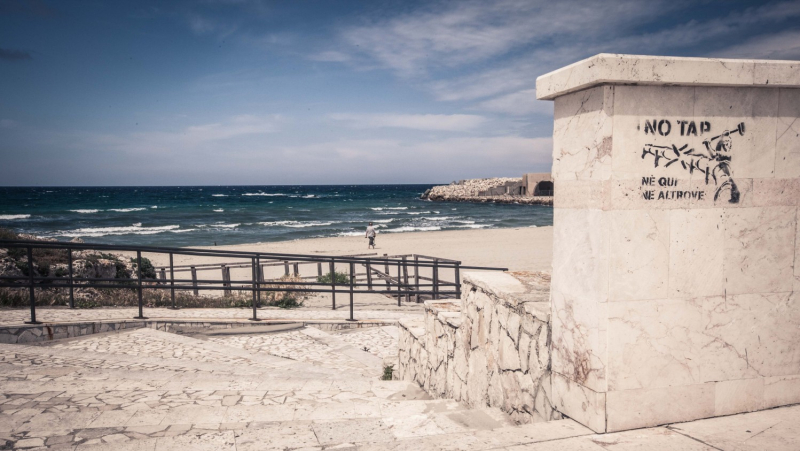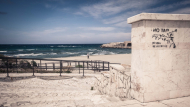The Azerbaijani Laundromat scandal and the Trans Adriatic Pipeline

The ramifications of the ‘Azerbaijani Laundromat’ investigation, recently brought to light by Danish newspaper Berlingske, the Organized Crime and Corruption Reporting Project (OCCRP) and a string of major European media outlets, are deepening.
Last week, in reaction to the Laundromat revelations concerning a $2.9 billion Azerbaijani money laundering and lobbying scheme, the European parliament voted in favour of setting up a ‘comprehensive’ investigation into what it views to be “attempts by Azerbaijan and other autocratic regimes in third countries to influence European decision-makers through illicit means”.
Leading the call for the investigation is Catalan MEP Jordi Solé, who commented: “We will insist that thoroughly looks into the various responsibilities of all those involved in this massive money laundering and corruption scandal, including European banks, and holds them accountable”.
Comprising so many payments as it does, the existence of the Laundromat – reliant on four UK-based shell companies for pushing the money around – suggests that Azerbaijan has required to get a lot of ‘influencing’ done in recent years. But for what?
What is Azerbaijan’s principal, long-standing economic and geopolitical asset?
Writing in The Guardian, the Azerbaijani investigate journalist Khadija Ismayilova, previously jailed by the Baku authorities, understandably views the Laundromat funds as being central to the Baku regime’s efforts “to ease criticism over human rights in order to secure billions of international loans for its mega projects, which will serve merely to prolong its own life.” Chief among these projects is the Southern Gas Corridor (SGC), a chain of export pipelines aimed at delivering Azeri gas to the EU, and which our colleagues at Platform, Re:Common, Counter Balance and Bankwatch have also identified as “the missing piece of the Azerbaijani Laundromat puzzle” in a letter to The Guardian.
Two component parts of SGC are the Trans-Anatolian Natural Gas Pipeline (TANAP) through Turkey, and the Trans Adriatic Pipeline (TAP) crossing Greece, Albania and the Adriatic Sea to Italy. On October 18, one month before this year’s UN climate summit in Bonn, the European Bank for Reconstruction and Development (EBRD) and the European Investment Bank (EIB) are both lining up to blow record sums of public development finance on this fossil fuel infrastructure: a $500 million loan decision for TANAP is due to be made by the EBRD, alongside a €2 billion loan decision by the EIB for TAP. The EBRD could then opt to funnel a further $500 million into TAP, and the EIB an additional €1 billion into TANAP.
If the public banks green light these deals, it could also trigger a stampede from prospective private bank financiers, as it did when the EBRD agreed a $500 million loan for another Caspian export pipeline project, the Baku-Ceyhan pipeline, in 2003. Then, private banks such as Citi, Intesa, Crédit Agricole and Société Générale quickly signed up to finance the project.
French bank Société Générale for one is already very much ‘in’ the TAP project: since 2013 it has been formally advising the TAP consortium which involves, among others, Azerbaijan’s state oil company SOCAR and BP.
On a recent search of OCCRP’s database of the nearly 17,000 payments which make up the Azerbaijani Laundromat, just one bank was found to be specifically listed and identified as a Laundromat ‘beneficiary’: Société Générale.

The four alleged payments to Société Générale, all originating from the now disbanded Glasgow-based shell company Hilux Services LP, were made in 2014, the year after the bank was appointed to be TAP advisor. No enlightening details about the purpose of these payments is provided, and the total sum received of just over $75,000 is not earth-shatteringly large. Equally, OCCRP offers the following disclaimer on its site: “Please note that the database may contain legitimate business transactions, and that the presence of any name in this dataset does not necessarily imply any intentional wrongdoing.”
BankTrack and Friends of the Earth France put this finding – and the screenshot above – to Société Générale staff members, who formally denied any link between these payments and the bank’s advisory role in the TAP project. In a formal statement, but without offering any evidence to back up the claim, the bank also noted that it “is not the beneficiary of these payments which resulted in payments to the benefit of a third party.”
Société Générale further confirmed that it has so far not provided any financing to TAP and that the project “is developed in compliance with all the laws and regulations and aims to be compliant with the environmental & social commitments for its potential lenders, including the Equator Principles. An Environmental & Social review by an independent and well known consultant is currently underway, and the bank is kept updated regarding any further development.”
This is the first substantive reaction we’ve received from Société Générale since the publication of a joint BankTrack-Counter Balance analysis of the TAP project in February this year, which was sent to Société Générale and other potential private bank lenders along with follow-up correspondence and project updates. Our analysis found that the project, now in its construction stage, does not comply with four of the Equator Principles – on a variety of counts.
Big money and reputations are on the line
Unlike Société Générale, another named Laundromat beneficiary, Kalin Mitrev, has not disputed being a beneficiary of payments identified in the Laundromat investigation, but has instead said they were legitimate payments for services provided. Mitrev is currently serving as Bulgaria’s country representative on the EBRD’s board of directors. The Laundromat investigation identified Mitrev, during a period (2012-2014) when he was not serving on the EBRD board, as the recipient of at least €425,000 from an Azeri company for what he claims to have been private consulting work. Mitrev’s future at the EBRD remains unclear, with the multi-lateral development bank maintaining that it is a matter for the Bulgarian government to decide on.
Both the TAP project and the wider Southern Gas Corridor initiative are highly political projects, with big money and reputations on the line, not to mention the human, social and environment rights of the thousands of people who will be affected should the gas start flowing. If the Azerbaijani Laundromat has proved one thing it is the extent to which a totalitarian hydrocarbon state has sought to create collective official amnesia across Europe about widespread human rights abuses which have been going on for more than 20 years.
With a huge slush of dodgy payments now out in the open, and fresh revelations likely to emerge, it’s incumbent on socially and environmentally responsible banks – both public and private – which are considering finance to conduct their due diligence robustly and objectively.
But more than that – major public interest doubts continue to hang over both TAP and TANAP, and with the smell of corruption around them now intensifying as a result of the Laundromat scandal, all banks should also be thinking about engaging with relevant civil society stakeholders in more meaningful ways. For example, we still don’t know how Société Générale expects that TAP can become Equator compliant, and we still don’t know what’s behind the bank’s listing in the Laundromat database.
The Trans Adriatic Pipeline features as a ‘Disaster Project’ in BankTrack’s current international campaign EQUATOR BANKS, ACT!
Find out more and support our call to more than 90 of the world’s biggest banks at:
www.equatorbanksact.org

